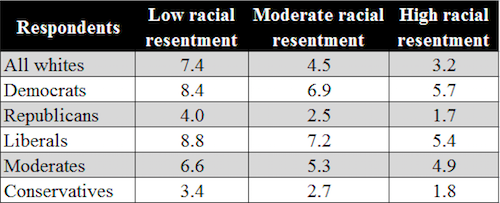Matthew Yglesias's Blog, page 2296
May 25, 2011
Helping Low Income Kids Go To College Without Discouraging Them From Finishing On Time
By Matthew Cameron
David Leonhardt's column today about the failure of high-quality colleges to serve low-income students is interesting in light of a 2002 study (pdf) by Giorgio Brunello and Rudolf Winter-Ebmer that analyzed the unusually long durations that many European students spend in college completing their degrees. The report notes that the median graduation age for three-year degrees was 27.6 in Denmark and 25.7 in Sweden and that 31.2 percent of students in Sweden and 30.8 percent of students in Italy expected to take at least one extra year to earn their degrees.
One of the primary factors that the study's authors identify as contributing to long degree completion times in Europe is the substantial amount of financial support many governments provide for higher education. "Excess time to graduation is significantly higher, on average, in countries where the share of public expenditure on total expenditure for tertiary education is higher," they write. "This is consistent with human capital theory, which suggests that the investment in years of education depends on the comparison of marginal benefits with marginal costs." Hence, colleges in countries such as Sweden, where higher education is essentially free to those who qualify, have difficulty graduating their students on-time.
Leonhardt's comes to a starkly different conclusion, that there's not enough public financial support for higher education, particularly with regard to tuition assistance. He cites a Century Foundation report that shows a mere 44 percent of low-income high school seniors with high standardized test scores enroll in four-year colleges upon graduation, as opposed to 50 percent of high-income students with test scores that are just average. This suggests that many low-income students are deterred from pursuing four-year degrees because of cost concerns. Furthermore, among those low-income students who do enroll, many wind up in lower-quality four-year colleges that are nearer to their homes and less expensive. This problem, known as "under-matching," means that high-achieving, low-income students often are under-stimulated in their college environments and consequently drop out before completing their degrees.
The data from Europe creates a conundrum: If additional tuition assistance is provided to students, it might cause an additional problem for the higher education system by lengthening the amount of time that it takes students to graduate. This could strain resource-starved institutions that do not have enough instructors, classroom space or infrastructure to deal with students who linger for extended periods of time.
The answer could be to provide tuition assistance that phases out as students approach the expected time of degree completion. Alternatively, gradually increasing tuition over the course of a student's time in college can lead to faster completion times – as borne out in this 2007 report (pdf). In either case, the moral hazard created by having a third-party payer for a student's higher education would be mitigated since the financial burden of education gradually would be shifted from the state to the individual. At the same time, low-income students who have demonstrated high-achievement capabilities will be afforded greater opportunities to realize their full intellectual and economic potential.


Racial Resentment Is Highly Correlated With A Variety Of Views Of Barack Obama
Bill Clinton spoke this morning at the Peterson Fiscal Summit, and was both very impressive and not particularly different in substance from anything you'd hear from the White House. It naturally brought to mind the question of how different the reaction to Obama administration policies would be if the man offering them was a southern white guy rather than a black guy with a funny name.
Alan Abramowitz's paper "The Race Factor: White Racial Attitudes and Opinions of Obama" doesn't really answer the question but is suggestive:

The results in Table 2 show that racial resentment was strongly related to ratings of Obama and that this relationship persists even after controlling for party identification and ideology. Regardless of party identification or ideology, whites who scored high on the racial resentment scale had substantially more negative opinions of Obama than those who scored low on the racial resentment scale.
You see something similar in terms of beliefs about where Obama was born. Now I tend to assume that the correlation was weaker when Bill Clinton was president, and that the correlation between racial resentment and views of Nancy Pelosi is weaker, but I would be interested to see those kind of specific comparisons.


If You Want To Reduce The Growth In Health Care Costs, You Need To Reduce The Growth In Health Care Costs

Peter Orszag's debut column for Bloomberg Views notes that while Paul Ryan's plan to eliminate Medicare will reduce Medicare spending, it simply shifts those costs onto patients. Nothing is done to actually control health spending:
At the heart of the Ryan plan is a shift within Medicare toward consumer-directed health care -– which in turn is predicated on increasing beneficiaries' "skin in the game" to make the health system more efficient. While more consumer cost-sharing would help reduce unnecessary care, the plan would not live up to its billing in cutting health costs for America. According to the nonpartisan Congressional Budget Office, it would do the opposite. That's right: The CBO found that the Ryan Medicare proposal would substantially increase total health-care spending.
CAP's plan, by contrast, is to reduce spending on Medicare by reducing inefficiency throughout the health care system:
To avoid that outcome, our plan brings down the costs of health care for everyone, not just those of the federal government. In this effort the Affordable Care Act, passed last year, is our most valuable tool. The new health care law has dozens of mechanisms, reforms, and pilot programs designed to bring down the costs of care, while improving the quality. The law also encourages the private sector to follow the public sector's lead, and incentivizes public-private partnerships that bring down costs broadly. Backstopping all of this is the Independent Payment Advisory Board, whose mission it is to ensure that target savings are realized.
In our plan, aggressive implementation of the new health reform law, along with some enhancements to its existing cost-control mechanisms, will result in dramatically lower health expenditures, both for the federal government and overall. But predicting the exact effect of the myriad test programs and reforms in the new health law is fraught with uncertainty. Thus we also include a failsafe mechanism that would ensure significant savings.
Our failsafe would be triggered if, starting in 2020, total economywide health care expenditures grow at a rate faster than the economy. Should that happen then we would empower the Independent Payment Advisory Board to extend successful reforms in Medicare and other public programs to insurance plans offered in the health care exchanges and then potentially to all health care plans, such that the target is met. This will ensure that costs are constrained across the health care sector, preventing cost-shifting and maintaining access for all.
Now I think it's unclear whether or not this will actually "work" in a procedural sense. Our collective political system, despite talking constantly about the need to lower health care costs, seems to me to actually be held hostage to health care providers who want to push spending up. But if congress does in fact want to slow the growth in health care spending, this or something very much like it is the way to do it.


'Damages' Takes on Military Contractors
By Alyssa Rosenberg
Well, this is one way to use current events to boost ratings: Jace Lacob, hot off the press call about the next season of Damages, alerted me to something I'd missed. The show's going to have the main characters file a wrongful death suit against a military contracting company, headed by John Goodman. And Dylan Baker is also guest-starring as an Erik Prince-like figure, which after his stint on Kings, marks his second big turn as a militaristic industrialist,. The wars in Iraq and Afghanistan have made themselves felt on American television shows from ER to Arrested Development, and we've had one-off events like Generation Kill. But it'll be interesting to have a long arc devoted to this facet of the war in an existing show. And after siccing Glenn Close's legal pitbull Patty Hewes on corporate villains from Enron to Madoff-like Ponzi schemers, it'll be fun, and maybe even fulfilling, to see her go after a new category of profiteers.


Against Term Limits
Bill Clinton spoke this morning at the Fiscal Summit and, as ever, he's very impressive at talking the details of public policy in a semi-informal setting. Very, very impressive.
Indeed, I heard a few people mention that Bill Clinton makes them wish that there was no rule against a president serving two terms. And beyond the specifics of the 2000 election, I have to agree. It was very strange in 2008 to have this grand interpretive battle over whether or not electing John McCain would amount to four years of more of the same. And in general, I'm against restricting voters' choices in terms of who might be president. I think parties should be allowed to nominate an immigrant if that's what they want to do. Or a young person. Or someone who's already served as president for two terms. Why not?


Higher Education And Class Stratification

An excellent column by David Leonhardt notes that America's elite colleges and universities are much more a driver of class stratification than an engine of opportunity:
The truth is that many of the most capable low- and middle-income students attend community colleges or less selective four-year colleges close to their home. Doing so makes them less likely to graduate from college at all, research has shown. Incredibly, only 44 percent of low-income high school seniors with high standardized test scores enroll in a four-year college, according to a Century Foundation report — compared with about 50 percent of high-income seniors who have average test scores.
"The extent of wasted human capital," wrote the report's authors, Anthony P. Carnevale and Jeff Strohl, "is phenomenal."
This comparison understates the problem, too, because SAT scores are hardly a pure measure of merit. Well-off students often receive SAT coaching and take the test more than once, Mr. Marx notes, and top colleges reward them for doing both. Colleges also reward students for overseas travel and elaborate community service projects. "Colleges don't recognize, in the same way, if you work at the neighborhood 7-Eleven to support your family," he adds.
This is in part something we can try to improve on through better public policy. But another channel I would urge people to consider is simply social norms. Fancy colleges and universities are largely funded by charitable donations. People make these donations in part because doing so is a socially esteemed undertaking. If we, as a society, shift our idea of what kinds of activities should be valorized then donor behavior will shift and schools will find ways to be more credible ladders of opportunity.


Paul Ryan's Care Against Medicare "Monopolies Don't Work"

Talking to Mario Bartiromo at today's Fiscal Summit, Representative Paul Ryan offered a number of arguments in favor of repealing Medicare and replacing it with coupons to partially offset the purchas of private health insurance. One such argument that I found particularly curious was the idea that "monopolies don't work." For one thing, obviously Medicare's customers seem to like it pretty well. That's why Ryan is (somewhat disingenuously) running around trying to assure people over the age of 55 that nothing's going to change for them. By contrast, everyone hates their private health insurance.
But what's really analytically wrong here is that monopolies work great at buying things. What an insurance company does is sell coverage to patients and then buy health care services from health care providers. And the bigger the insurance company, the better the job it can do of driving a hard bargain. That's the reason Medicare's per unit costs are dramatically lower than the costs of any private insurance plan. If Medicare covered everybody in the whole country, that would obviously require higher tax revenue but it would drive per unit costs down. By contrast, Ryan's plan to replace Medicare's semi-monopsony with even more fragmented plans would drive per unit costs up. It's true that it would create more budgetary headroom for lower taxes on rich people, but that's another thing entirely.


The Limits Of Radical Exurbanism

(cc photo by electronavalanche)
My baseline view is that American population will grow over the next 50 years, so we'll need more of all kinds of housing. Big cities, small towns, whatever. More. But it's interesting to speculate about the balance. Karl Smith describes his "growing interest in radical exurbanism":
The idea that developments in telecommunication will allow people to live far away but still have business relationships.
We might then imagine living arrangements evolving solely around being near family and friends. A sort of extensive network of small towns, each containing people highly sorted to wanting to live within the norms of that small town and with the people of that town.
I think that's very appealing in many ways. But I doubt it will predominate. In the future, the trend toward increased mechanization of manufactured goods production will continue. And the trend toward digital goods being extremely cheap and plentiful will also continue. That means, more or less necessarily, that the majority of people will be involved in selling face-to-face services to each other. What kind of services? I'm not sure. Cops, yoga instructors, chefs, and preschool teachers all seem like plausible candidates. And there will necessarily be some advantages to scaling that kind of thing up. In a radical exurban community there might only be the population base for a Papa John's. A larger community that supports a Papa John's, a Pizza Hut, and a Dominoes will be better able to match idiosyncratic customer preferences with available variety of crappy national chain pizza. Consequently, the larger community has higher productivity in the crappy chain pizza sector (for the record, Papa John's is the right choice).
And this same dynamic applies to a wide range of face-to-face services in a way that militates in favor of some kind of metropolitan living.


Land Swaps Are Hard
Incidentally, if you want to get a sense of how difficult 35 years of settlement-building have made the Israeli-Palestinian conflict to resolve, I highly recommend that you look at David Makovsky's proposed map of land swaps. This mostly shows Israeli settlements that would be annexed to Israel, the offsetting land to be sent to Palestine is largely adjacent to the Gaza Strip:

This is a very strange-looking border. I don't want to say it's unworkable. The hurdles to the alternatives—dismantling the settlements or a binational single state—seem to be even bigger. But this isn't easy. And the difficulty isn't in identifying equivalently sized swathes of Israel to hand over to Palestine, it's in imagining how these jigsaw-puzzle countries are going to fit together.


Fiscal Summit Tweets
I'm primarily going to write about the fiscal summit on my public twitter feed as it's ongoing, since to write at greater length really requires me to actually read some pretty long documents and not just listen to people talk.


Matthew Yglesias's Blog
- Matthew Yglesias's profile
- 72 followers



